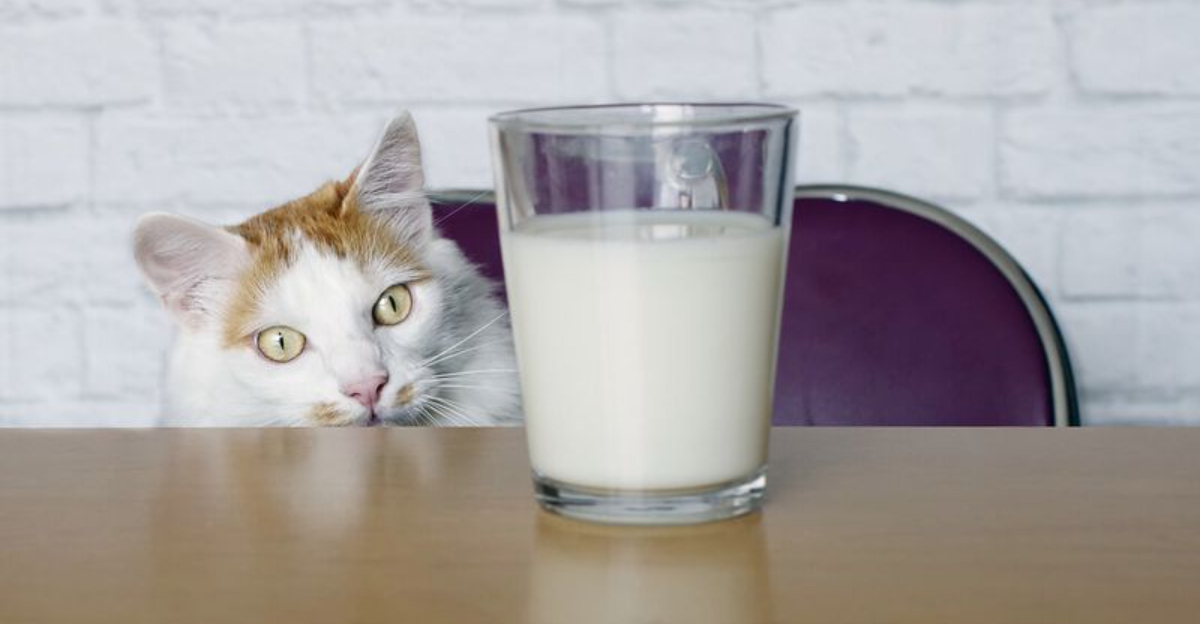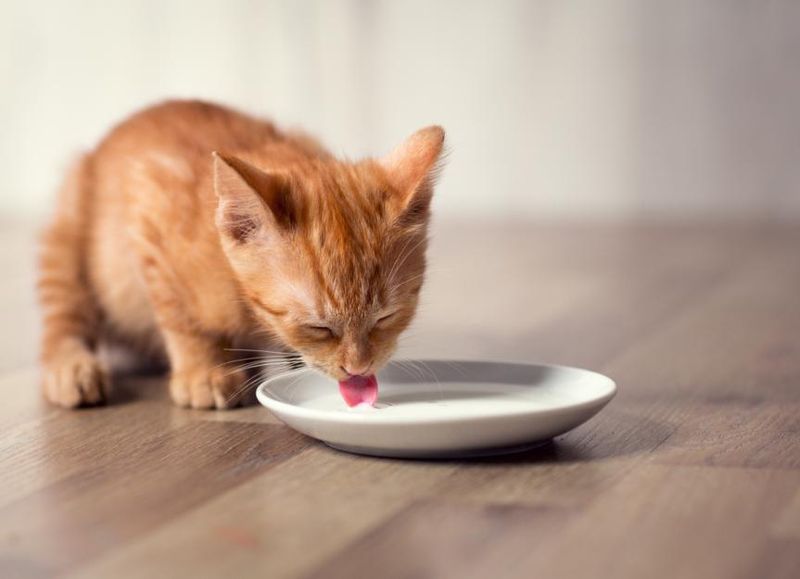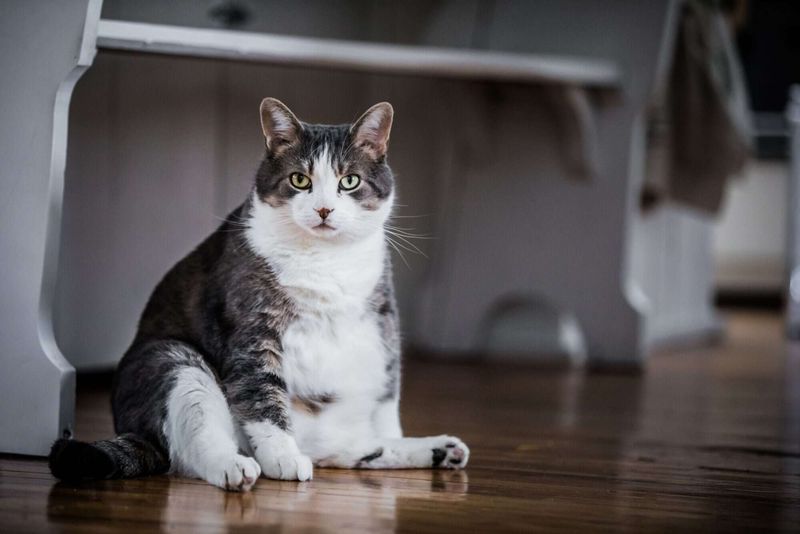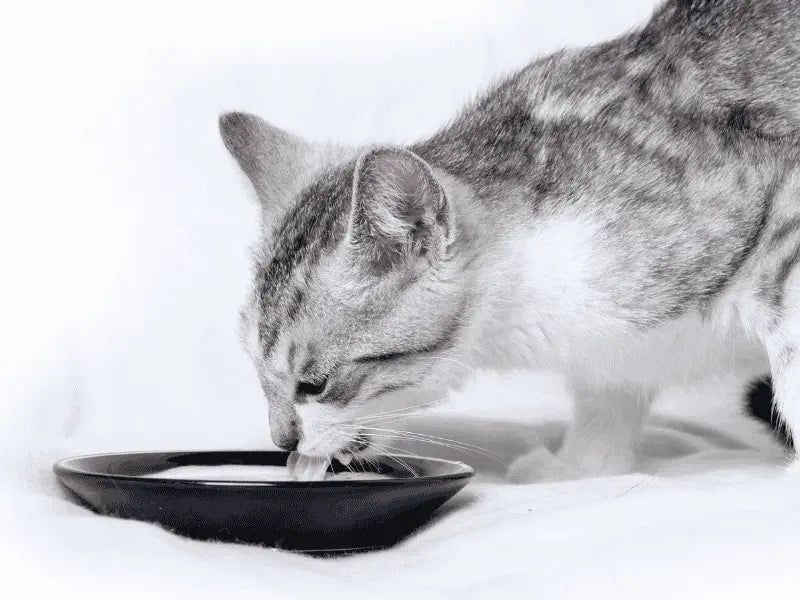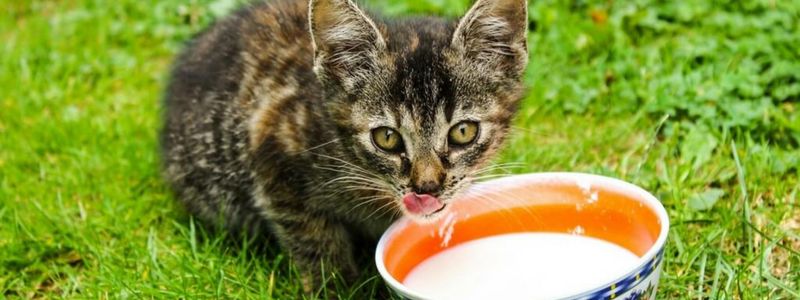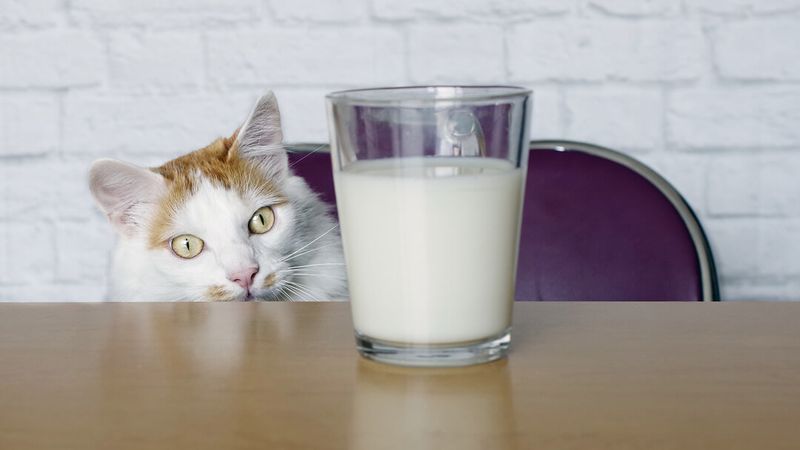📖 Table of Content:
The enduring image of cats blissfully lapping up milk is a misleading one. While it might seem like the perfect treat, offering milk to cats can lead to numerous health issues. Despite the charming stereotype, most adult felines are lactose intolerant, lacking the enzyme lactase needed to digest the lactose in milk. This can result in digestive distress such as diarrhea and vomiting. Moreover, milk’s high fat content can precipitate weight gain and related health concerns. Providing fresh water and a balanced diet remains the best way to ensure your cat’s health and happiness.
1. Lactose Intolerance in Cats
Not all cats can digest milk due to lactose intolerance. Without lactase, the enzyme that metabolizes lactose, consumption leads to gastrointestinal issues. Imagine your cat experiencing discomfort like vomiting or diarrhea. This isn’t uncommon, as most adult cats naturally lose the ability to break down lactose after weaning. While kittens rely on their mother’s milk, adult cats have no dietary need for it. To prevent unnecessary distress, understanding your cat’s dietary needs is crucial. This ignorance often results in avoidable vet visits and a miserable pet. Always choose water and specialist cat foods for optimal health.
2. High Fat Content
The creamy, rich texture of milk is deceivingly harmful. High-fat content in milk contributes to obesity in cats, tipping the scales towards unhealthy weight gain. An overweight cat isn’t just a lazy cat; it’s one at risk of developing diabetes, arthritis, and heart disease. Picture your once-active feline struggling with basic movements, all because of a well-intentioned treat. This misconception can cost your pet its vitality and longevity. Cats require a diet catered to their specific nutritional needs, devoid of excessive fats. Protect their health by skipping the milk and opting for balanced nutrition.
3. No Nutritional Value
Milk might seem like a harmless treat, but it offers no nutritional benefits to adult cats. They require a diet filled with proteins, vitamins, and minerals. Milk fails to provide these essential nutrients, turning it into an empty calorie source. Picture your cat choosing between a nutrient-rich meal and a dish of milk; the better choice supports its health. Always consider the long-term well-being of your feline friend. Cats thrive on food tailored to maintain their active lifestyle and health. Offering milk disrupts this balance, leading to potential deficiencies.
4. Digestive Distress
Imagine the turmoil of a distressed stomach. For cats, milk often becomes a source of digestive upset, causing discomfort like bloating and cramps. This unnecessary suffering stems from lactose, which their systems are ill-equipped to process. The charming image of a cat sipping milk belies the reality of subsequent gastric distress. It’s vital to recognize this and adjust their diet accordingly. Prioritize hydration with fresh water and meals designed for their digestive health. By doing so, you ensure their comfort and prevent the avoidable pain associated with milk consumption.
5. Disrupts Diet Balance
Cats require a balanced diet to maintain their health, and milk disrupts this equilibrium. Regular intake of milk can lead to nutritional imbalances, impacting their long-term well-being. Their diet should consist of high-quality proteins and nutrients specific to felines, not the fats and sugars found in milk. Visualize a diet pyramid representing their needs, with milk tipping the balance unfavorably. It’s crucial to understand that treats like milk can inadvertently harm a cat’s diet. Prioritizing their specific dietary requirements helps ensure a healthy, vibrant life.
